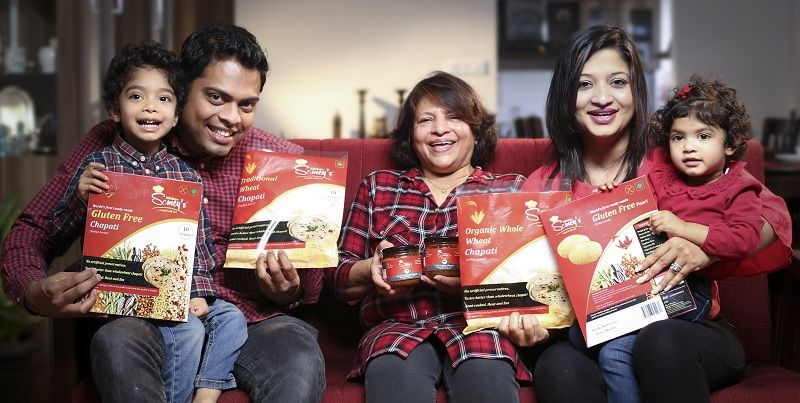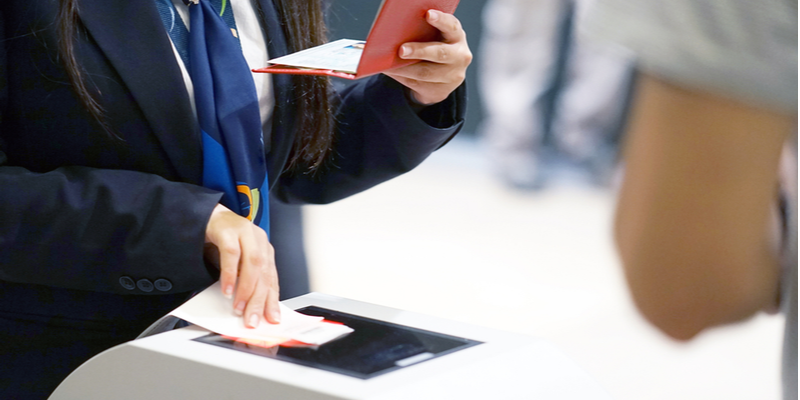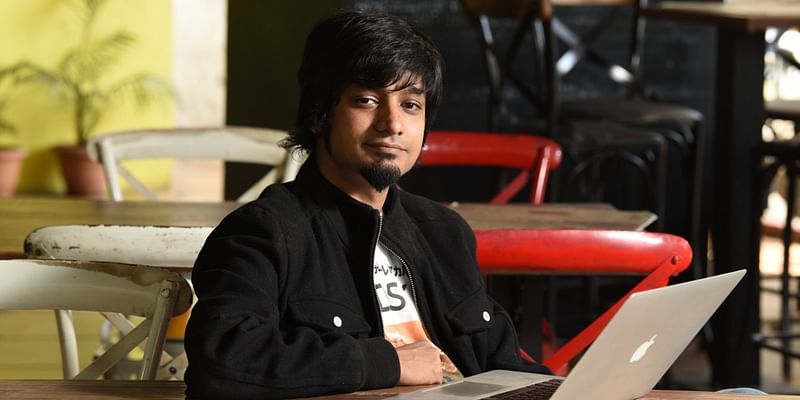This couple sold their home to start Somey’s Kitchen, aims to spread the love for Indian cuisine
Now present in the UK and India, Somey’s Kitchen offers a range of homemade-style pickled masalas and Indian breads.
At a glance
Startup: Somey’s Kitchen
Founders: Sandy Samuel Jerome, Joel Jerome
Year of launch: 2015
Location: UK, India
Sector: Food
Problem it solves: Tasty condiments with long shelf life
Funding: Rs 5 crore
Joel Jerome, 34, and Sandy Samuel Jerome, 33, are among the Indian diaspora who have taken their tradition to foreign waters and made a business out of it. Settled in a country where chicken tikka masala is a national dish, the couple - three years ago - decided to make a profit out of their home recipes.
The couple, originally from Bangalore, has been living in the UK after marriage since January 2009. Joel, an MBA grad, has worked for large companies in business management roles while and Sandy, a post graduate in advertising, worked for Google in India and Trinity Mirror Southern in the UK. Sandy comes from a family of entrepreneurs.
Sandy’s mother, Somey Samuel, used to visit them in the UK every year. Every time she did, there was a high demand from many friends and extended family for her prawn, chicken, and fish pickled masalas. Somey was making these in India at her home and selling to friends to raise funds for charity.
Joel and Sandy, who was looking to set up a global enterprise, thought that it would be a good idea to take it to the next level. They planned to transform the home-made condiments into a proper business, and donate 50 percent of the profit to charity. The UK’s love for Indian cuisine made Britain the obvious target market.
Hard beginnings
Named after the person whom the recipes came from, Somey’s Kitchen was born in October 2015. Their biggest challenge was to raise funds to set up a factory and take the business to the next level.

“We did approach investors and banks but none of them were willing to invest in a start up without any track record,” Sandy says.
Finally, the couple decided to sell their house in London, and invest this money into the business.
“This was an emotional decision as it was the first home we had bought, and both our children were born in that house. We had never thought of leaving London. But we had to make that sacrifice to fund ourselves and see our dream become a reality,” Sandy recollects.
They have now moved to live in Rugby, a smaller city close to Birmingham, where they have to travel a bit to meet distributors. Along with a bank loan for working capital, the couple has invested close to Rs5 crore into the startup so far.
Namaste India
In UK, their production of Somey’s Kitchen products was done in rental kitchens and their own home. They sold only online - about 100 bottles initially; soon the number grew to over 500 per month. But Sandy and Joel knew they needed to invest in a factory to raise the bar and target big retailers.
“Once we decided to set up a factory, we stopped trading in the UK, and put all our focus on setting up the factory (in 2017). Having limited funds, we decided to set up a factory in India as our global production unit. We launched pickled masala with Indian breads in 2018 in India and eventually UK,” Joel says.

Somey’s Kitchen already has a full-fledged sales and distribution team covering West and South of India.
They have launched their products with Big Basket, Big Bazaar, Star Bazaar, and Godrej’s Nature’s Basket.
“If we are successful in 10 large cities in India, that itself would be the size of Western Europe. General statistics around the population, growing buying power, and the increase in working couples who would not necessarily have the time to cook gave us the confidence that India is one of the main markets to go after,” Joel says.
Last month, they started India operations with the pickled masalas starting from Rs 240 per bottle, and chapatis and pooris priced between Rs 55 and 125 for a pack of 10.
Somey’s Kitchen is now a team of 50, including sales, operation, HR and finance personnel.
Love for Indian cuisine
Somey’s Kitchen has two main categories: Pickled Masalas (in fish, chicken, and prawn) and Indian Breads (wheat, organic, and gluten-free chapati and poori). Joel claims that they have received positive feedback from customers and have a decent repeat rate.

But masalas and pickles are a saturated market in India already. So what is Somey’s Kitchen’s differentiator?
Joel says, “We believe that our product is not like the pickles currently available in the market. Hence, we also do not call them pickles. We believe it’s a condiment and can be used as a side dish that goes with any main meal like rice or rotis. In the UK, we are promoting it heavily with bread and potatoes. This is what makes it unique.”
On the Indian bread category, Joel claims Somey’s Kitchen is the only one offering a shelf life of 90 days. They do not use preservatives but their unique technology in packaging enables this. “Also, you don’t get organic and gluten-free heat-and-eat Indian breads in the market today, which makes it our USP,” Sandy adds.
Tasty future
Somey’s Kitchen wants to focus on the modern trade and general trade stores. From mid-2018, they plan to start selling through Amazon India and Amazon UK . As a household brand, Somey’s Kitchen hopes to cross a monthly turnover of Rs 5 crore this fiscal.
Charity is equally important to Somey’s Kitchen. Their product labels and packaging mention their pledge to donate 50 percent of the profits to charity. The company aims to be profitable by the end of 2019.
“In 2019, we would be looking at US and some parts of Western Europe. In 2020, we are looking at Middle East and other parts of Asia. We see our product being liked by Indians globally so we are keen to tap into all major global markets,” Sandy ends.









